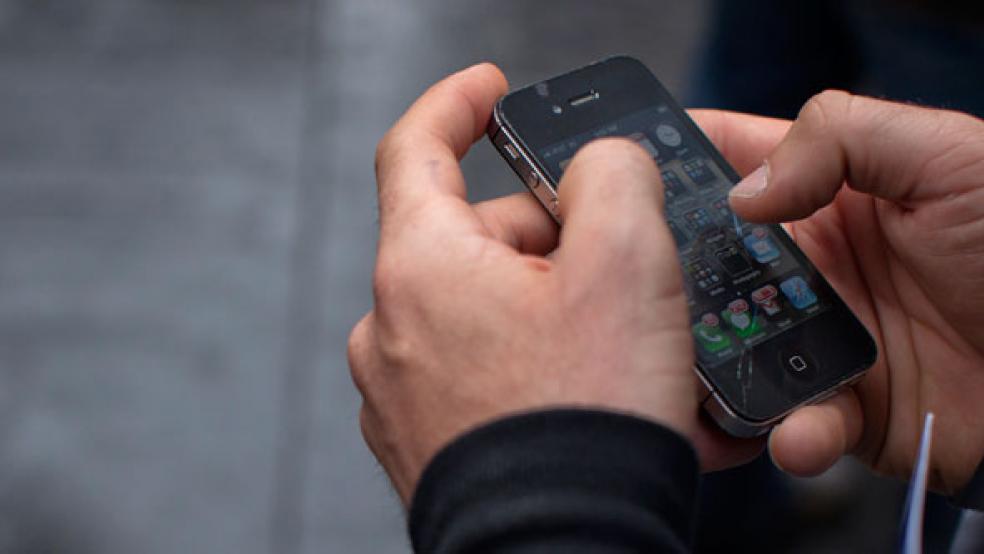Small donors may find themselves in higher demand in the last few weeks of the U.S. presidential election, which has so far been marked by the pursuit of big checks, as both campaigns are now asking for donations through a new venue: text messages.
The campaign of U.S. Republican presidential nominee Mitt Romney on Friday said it would begin accepting donations by text this week, rivaling a similar program launched by Democratic President Barack Obama's team last week.

With the successful spontaneous use of texts in fundraising for disaster relief and other charity causes, texted political donations could be a lucrative resource in the run-up to the November 6 election. Thanks to their small size, campaign finance reform advocates and fundraisers have touted text donations as a way to empower small donors in the era of six-figure donations to unlimited-spending outside groups fueling what is likely to be the most expensive U.S. election ever.
RELATED: Bill Bradley: Super PACs Are Killing Democracy
"We recognize that people lead busy lives ... This technology gives our incredible supporters the ability to make a donation in seconds - not minutes - with a text message," said Zac Moffatt, Romney campaign's digital director.
Text donations, as they were first approved in early June, can be made anonymously but have to be capped at $50 per month and $200 in total for one candidate or campaign.
Donations are prohibited from foreigners, people under 18 or corporations, which could also mean corporate phone accounts. Already most U.S. phone companies support the plan: Verizon Wireless, Sprint Nextel Corp, U.S. Cellular and T-Mobile USA, a unit of Deutsche Telekom AG. AT&T Inc, the second-largest U.S. carrier after Verizon, is still working out its contract agreements.
PHONE COMPANY'S CONCERNS
The new fundraising venue comes after a series of rulings by the Federal Election Commission that relieved phone companies of responsibility for possible fraudulent or excessive donations.
The process of political giving by text would be similar to giving to charity: A donor would send a short message to a text code, confirm intention and eligibility, and later pay for the donation as part of the monthly cell phone bill. But political donations are treated similarly to non-charitable transactions, such as purchases of ring tones, meaning that carriers and aggregators processing the payment take a cut that typically ranges from 30 percent to 50 percent of the donated cash.
AT&T is proposing to set up a special offer with much lower fee rates for political donations and has asked the FEC to approve to the plan. AT&T is concerned that without a new FEC vote on the issue, such a discount program could qualify as an illegal donation from the company itself.
For text political contributions, supporters of either candidate can expect to see solicitations from campaigns in ads, pamphlets and at rallies, asking to text GIVE to 37377 for Romney or 62262 (spells "OBAMA") for Obama.
Next week's Democratic National Convention in Charlotte, North Carolina will put the new fundraising scheme to a first real-time, large-scale test during this highly-televised event. The Republican National Convention in Tampa, Florida, ended Thursday night.
RELATED: Conservative Super PACs Outraised Liberals 3 to 1
Romney and the Republican Party have outraised Obama and the Democrats for three months in a row through July, when Romney raised $101 million for his campaign and Republicans while Obama and the Democrats hauled in $75 million. But grassroots fundraising has been Obama's advantage as he has been raising about half of his cash from small checks. Obama's small-donor prowess helped his campaign set fundraising records and win the 2008 election.
The United States has more than 330 million wireless service subscribers. Almost nine in 10 U.S. adults have at least one cell phone line and about three-quarters of those use text messaging, according to the Pew Research Center's Internet & American Life Project.


